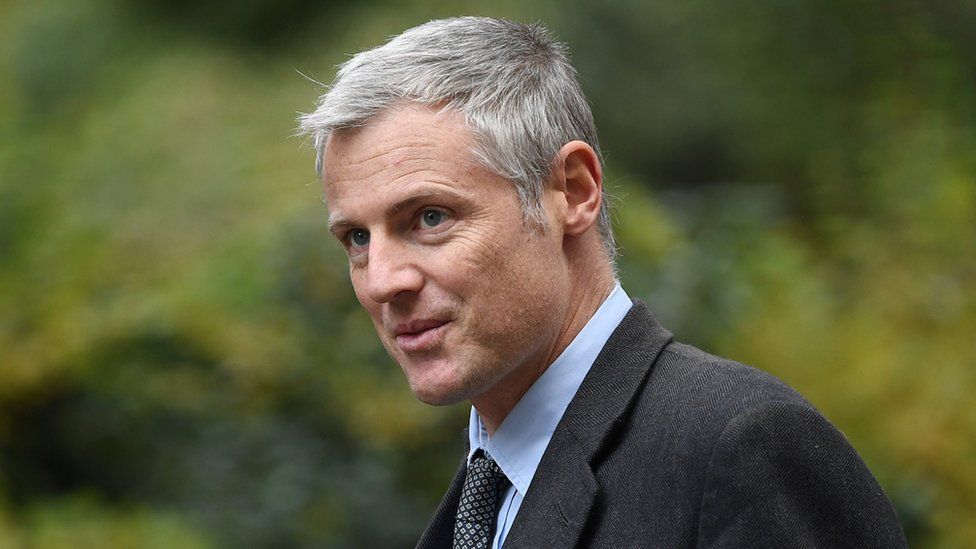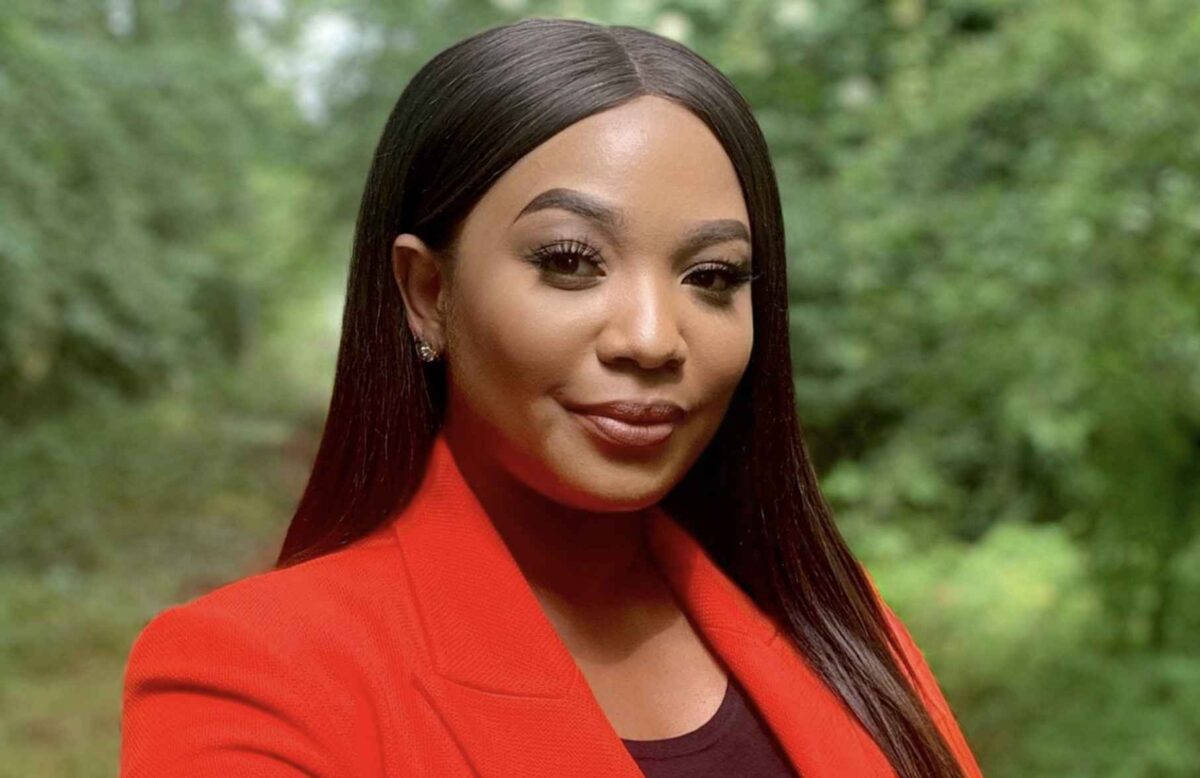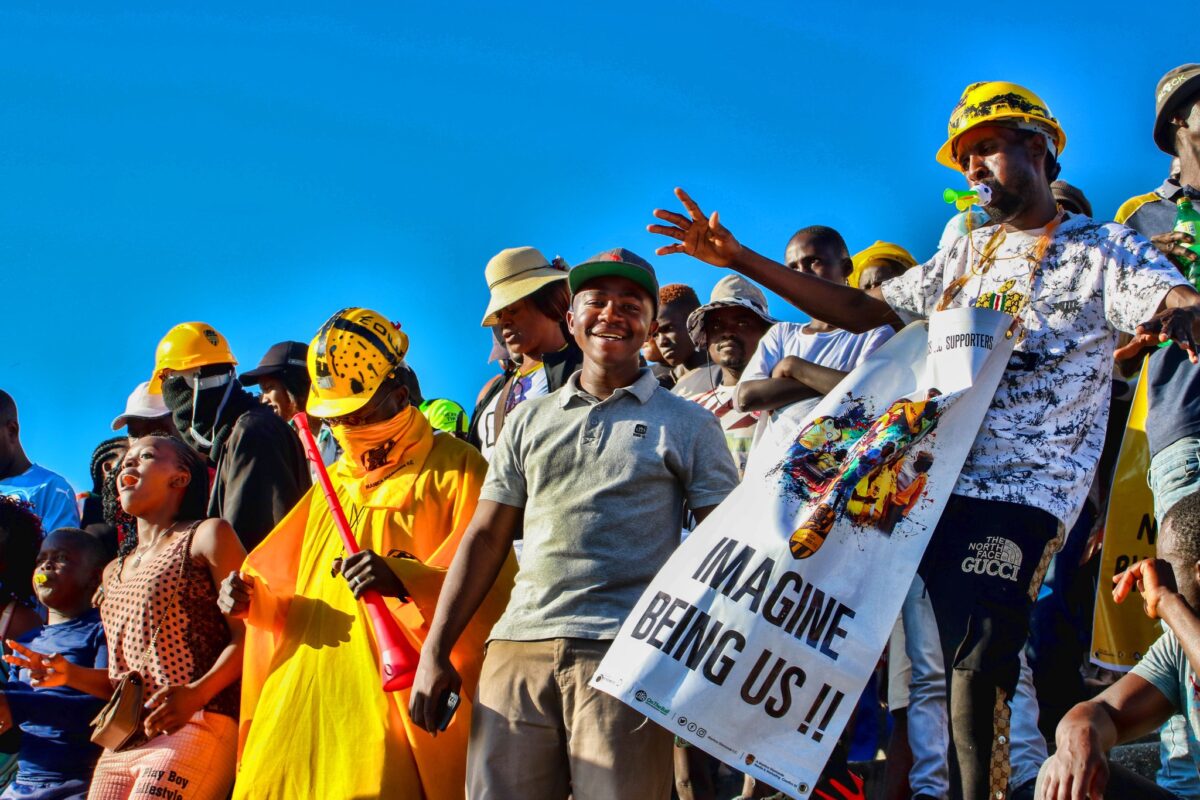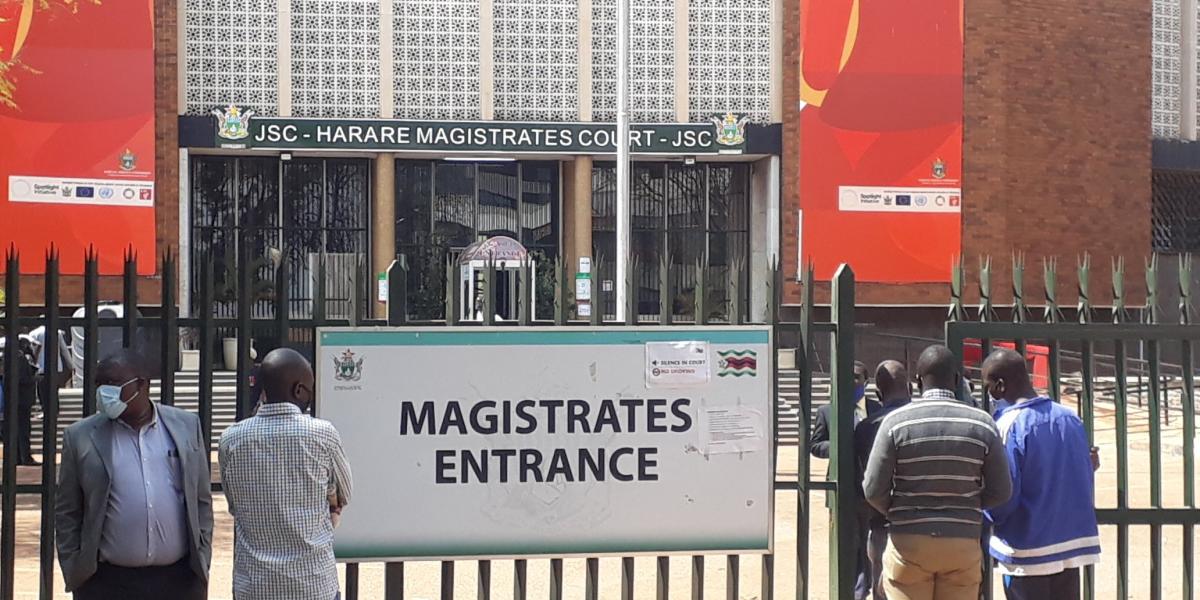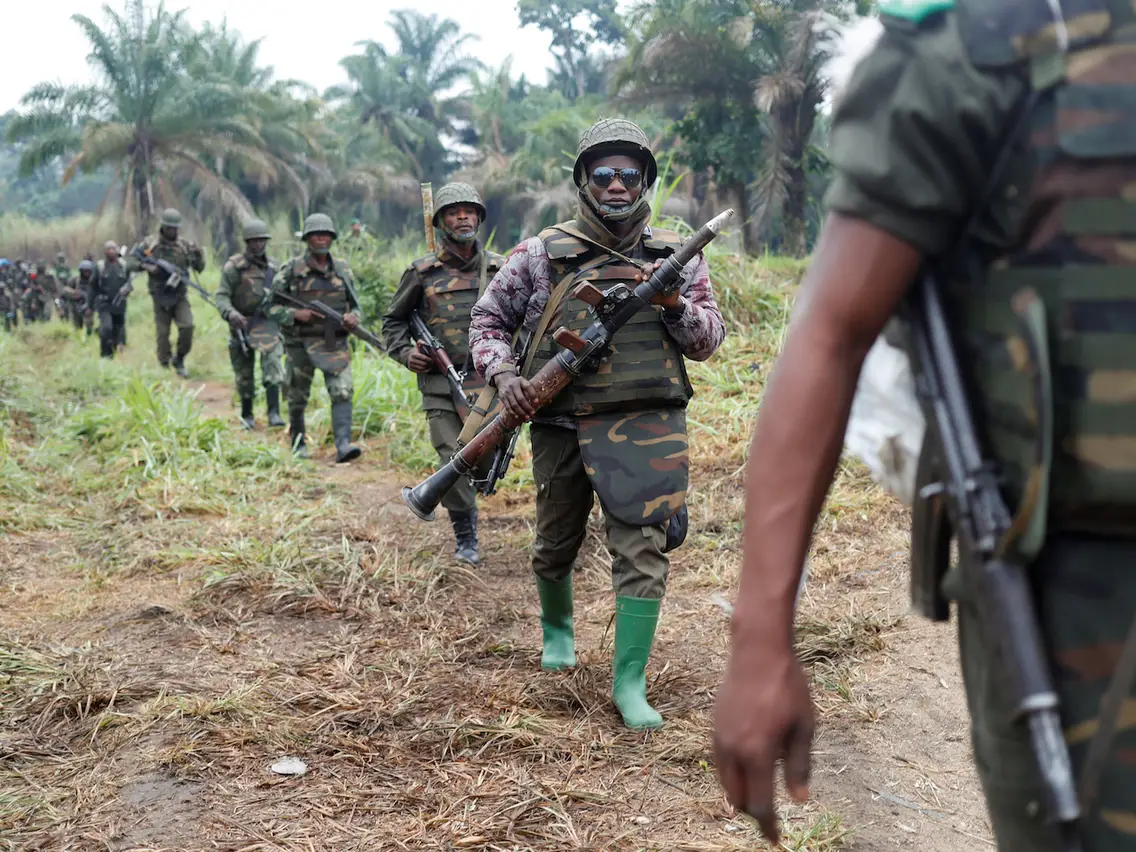WASHINGTON – The British government says it is concerned over the continued incarceration of lawmakers of the opposition Citizens Coalition for Change and political violence ahead of Zimbabwe’s 2023 general elections.
Responding to a question in the House of Lords posed by Liberal Democrat Lord Oates, the British Minister of State in the Foreign, Commonwealth and Development Office, Lord Goldsmith, said: “The UK is concerned by the trend of lengthy pre-trial detention of government critics in Zimbabwe. We are monitoring the ongoing detention of the MPs Job Sikhala and Godfrey Sithole.
“As the ambassador publicly stated on October 2, the UK is committed to the fundamental right to peaceful assembly and association, as enshrined in Zimbabwe’s constitution. The former Minister for Africa also raised the issue with the Foreign Minister of Zimbabwe on June 30.”
Lord Oates noted that Sikhala and Sithole have been detained without bail for 142 days in Chikurubi Maximum Security Prison “and paraded before court in leg irons (and) … only two weeks ago, the Bulawayo MP Jasmine Toffa was violently assaulted as part of an attack on CCC activists.”
He said across Zimbabwe, political violence is raging in the lead-up to the 2023 general elections.
Lord Oates appealed for King Charles’ support in condemning Zimbabwe’s brutalisation of the opposition.
“Will he join me in calling on the Zimbabwe government to end this political violence now? Will he join me also in making clear to ZANU-PF officials and Ministers, members of the Zimbabwe Republic Police and Zimbabwe prison officers that the world is watching and holds them accountable for the safety and security of all Zimbabwe’s citizens?”
In his response, Lord Goldsmith said: “l thank the noble Lord for raising this enormously important issue. He is right: the world is watching and of course the UK is deeply concerned by the challenging human rights situation in Zimbabwe. Political parties, journalists and opponents should be able to operate without any form of harassment.
“We regularly call for the rights of freedom of assembly and association, as well as the rule of law and due process, to be respected in line with Zimbabwe’s own constitution. We monitor all individual cases, including those that he mentioned, such as that of Jasmine Toffa MP. All political violence is concerning and violence against women in politics is of particular concern, particularly in Zimbabwe.”
His sentiments were echoed by Lord St. John of Blesto, who also expressed concern over the deteriorating political situation in Zimbabwe. He said indications are that the country won’t conduct a free, fair and credible election next year.
“My Lords, following the continued violence against opposition supporters and candidates at the Matabeleland election last weekend, and the refusal of the electoral commission to release the electoral roll, what chance is there of there being free and fair elections in Zimbabwe in July?”
Lord Goldsmith said the United Kingdom is working closely with international partners to encourage the Zimbabwean government to live up to their own constitution and commitment to electoral reform, including by implementing the recommendations from the 2018 electoral monitoring reports.
“We recognise that there has been only very limited progress to date on the electoral reforms recommended in the 2018 paper. Key outstanding areas include a transparent voter registration process, publication of an accurate voters roll, transparent use of state-owned resources and more effort to demonstrate the independence of the electoral commission. This remains a priority in our discussions with not just Zimbabwe but neighbouring countries as well.”
The Bishop of Southwark was also concerned about the current situation in Zimbabwe, noting that the systemic corruption and long-standing poor level of governance in Zimbabwe is undermining civil society and reducing the well-being of the people and all the institutions there, including the Church.
According to Goldsmith, Zimbabwe is a country with extraordinary potential and an extraordinary history, “and of course it is right that the current political approach inhibits that potential.
“The UK is a long-standing partner of Zimbabwe and we provide significant levels of ODA. However, I want to be clear to the House that we do so in a way that avoids government-to-government bilateral financial aid. In other words, none of the money that we provide is channelled through the government. Instead, we work through multilateral organisations, and wherever we possibly can we support civil society and NGOs in the private sector.”
Opposition chief whip Lord Colins of Highbury said he has in the past raised some of these issues taking place in Zimbabwe.
He said: “l have raised on numerous occasions with Ministers the continued repression of civil society in Zimbabwe, including of trade unionists. Can the Minister tell us the latest FCDO assessment of the passage of the Private Voluntary Organisations Amendment Bill, which Ministers have acknowledged could be used to restrict civil space? Could he tell us also how we are working with allies, global civil society and interfaith groups to ensure that it is their voice that is heard in Zimbabwe and not simply government voices? ”
In his response, Lord Goodsmith said: “We are concerned that the Private Voluntary Organisations Amendment Bill, if it becomes law and is implemented, could very easily be used to undermine the ability of civil society to operate effectively in Zimbabwe. It also puts at risk its ability to deliver development and humanitarian assistance. We engage very widely, not only with civil society within Zimbabwe and through our overseas development assistance, which I mentioned earlier, but also, importantly, with South Africa.
“As noble Lords will know, we have deep and long-standing ties with South Africa, recognising the important role that the African Union and the Southern African Development Community have in relation to Zimbabwe. UK officials speak very often on a broad range of issues, including of course on Zimbabwe.”
Lord Hayward also urged the United Kingdom to deploy observers in the 2023 general elections.
He said: “My Lords, reference has already been made to the elections in 2018; at that time I was one of the observers from this country on behalf of the Commonwealth, with the noble Baroness, Lady Jay. The report was pretty damning, particularly in relation to the events after the general election in 2018.
“Can my noble friend ensure that very strong representations are made to the electoral commission, because it has been lamentable in any action? It was before the 2018 election, and there is no sign that it will enforce any form of free and fair elections next year.”
Responding to Lord Hayward’s remarks, Lord Goldsmith said: “We will use whatever leverage we have to maximise the chance of free and fair elections. I make a broader point: we know that President Mnangagwa wants more engagement with the UK—that is clear—and in many respects we want him to have that too.
“However, deeper re-engagement with the UK will require meaningful political and economic reform and respect for human rights and the rule of law in line with the President’s own stated commitments when he took office. The former Africa Minister reinforced that message when she met the President last year at COP.”
He could not provide details of ministerial meetings, saying, “that is not to say that they have not happened—I just do not have the details of specific meetings. However, I know that at numerous international fora the then Africa Minister, as well as other Ministers including myself, have had discussions with neighbouring countries in the region where this and other issues have been raised.”
Not-affiliated Baroness Hoey is also worried about the current political situation in Zimbabwe.
She said: “The noble Lord, Lord Oates, has outlined the shocking violence perpetrated by Zanu PF and Mnangagwa on anyone, really, who opposes the regime. The economic situation is dire, and hunger is being used against anyone who opposes the regime.
“Does not the visit of the South African President—the first state visit under His Majesty the King—give the government a wonderful opportunity to work with the South African government and talk to them about how they, and other countries in Africa, can influence together to ensure that there really will be free and fair elections next year in Zimbabwe?”
Lord Goldsmith noted that Baroness Hoey has been a champion of Zimbabwe for many years.
“She is right to identify this upcoming visit as an opportunity. There is no doubt that South Africa, and indeed southern African countries, not least through SADC, have a particular ability to influence Zimbabwe, far more so than we can. I am sure that the topic we are discussing today will be on the agenda when the visit happens,” Goldsmith said.

